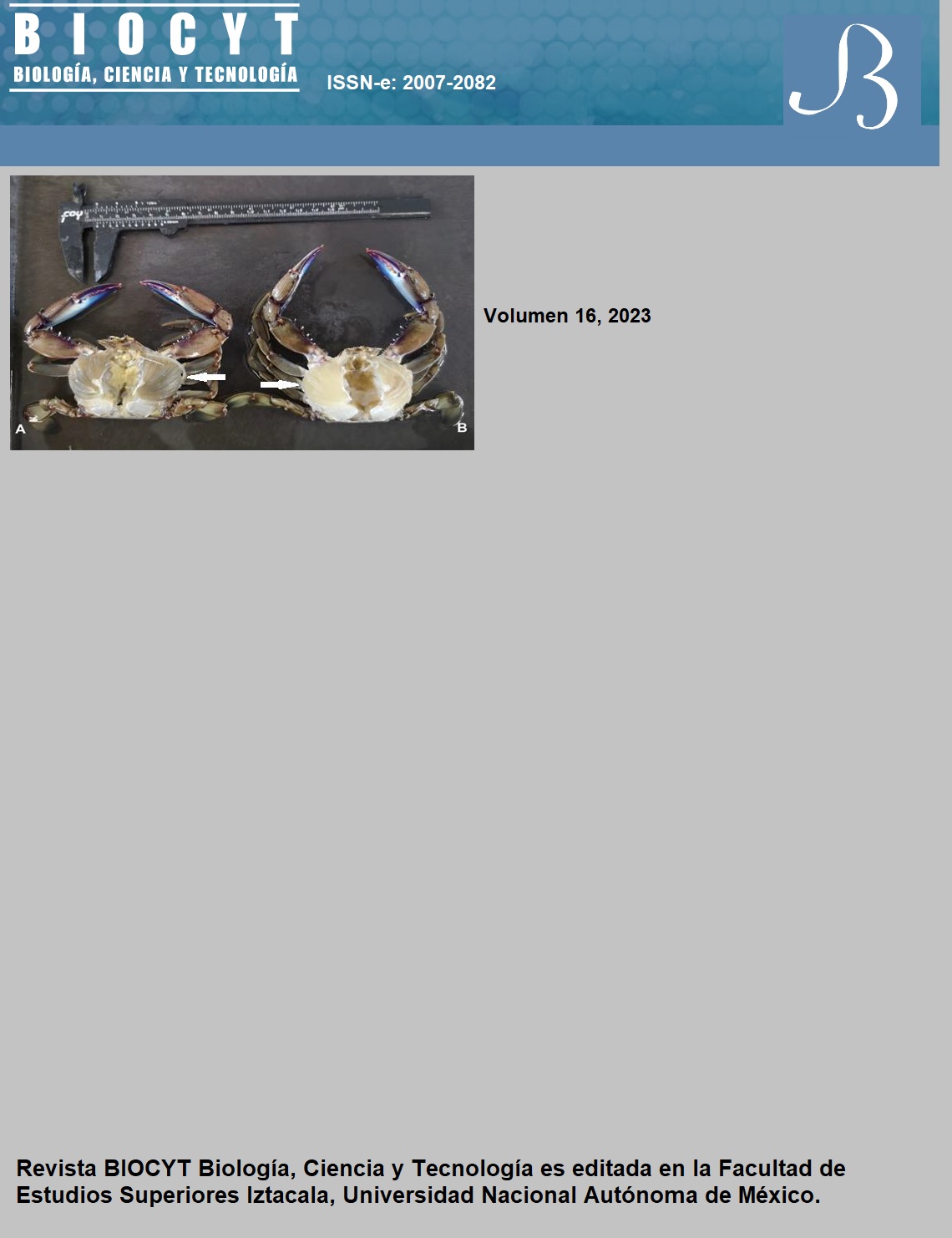Presencia de microplásticos en tracto digestivo de Anchoa hepsetus (Cupleiformes: Engraulidae) obtenidos de la pesca ribereña del municipio de Alvarado, Veracruz
Main Article Content
Abstract
World plastic production has been increasing; It is estimated that by 2050 it will exceed 1 billion tons,
which implies an impact on marine ecosystems. Anchoa hepsetus is a species with economic and ecological
importance in the Gulf of México. It is a neritic and coastal zooplankton-consuming species, which makes
it prone to ingesting microplastics suspended in the water column that are generated by anthropogenic
activities. The presence of microplastics in the stomach content of A. hepsetus obtained from coastal
fishing in March 2020 in the municipality of Alvarado, Veracruz was analyzed. In the laboratory, sex,
size, and weight of each organism were registered and the stomach contents were analyzed, the
microplastics were obtained directly and they were characterized by their physical properties of shape,
color and size and the frequency of occurrence was determined. A total of 126 fish were analyzed, the
average size and weight was 10.5 ± 2.5 cm and 8.0 ± 4.7 g respectively; microplastics were found in 18% of
the organisms; the fibers were the only type of microplastics found with an average length of 1.17 ± 1.06
mm, with a predominance of blue color with 47%. The contamination of marine environments by plastics
is being a new and important line for research due to the need to take actions for the protection of the
seas, which is growing every day and should be a priority for the authorities.
